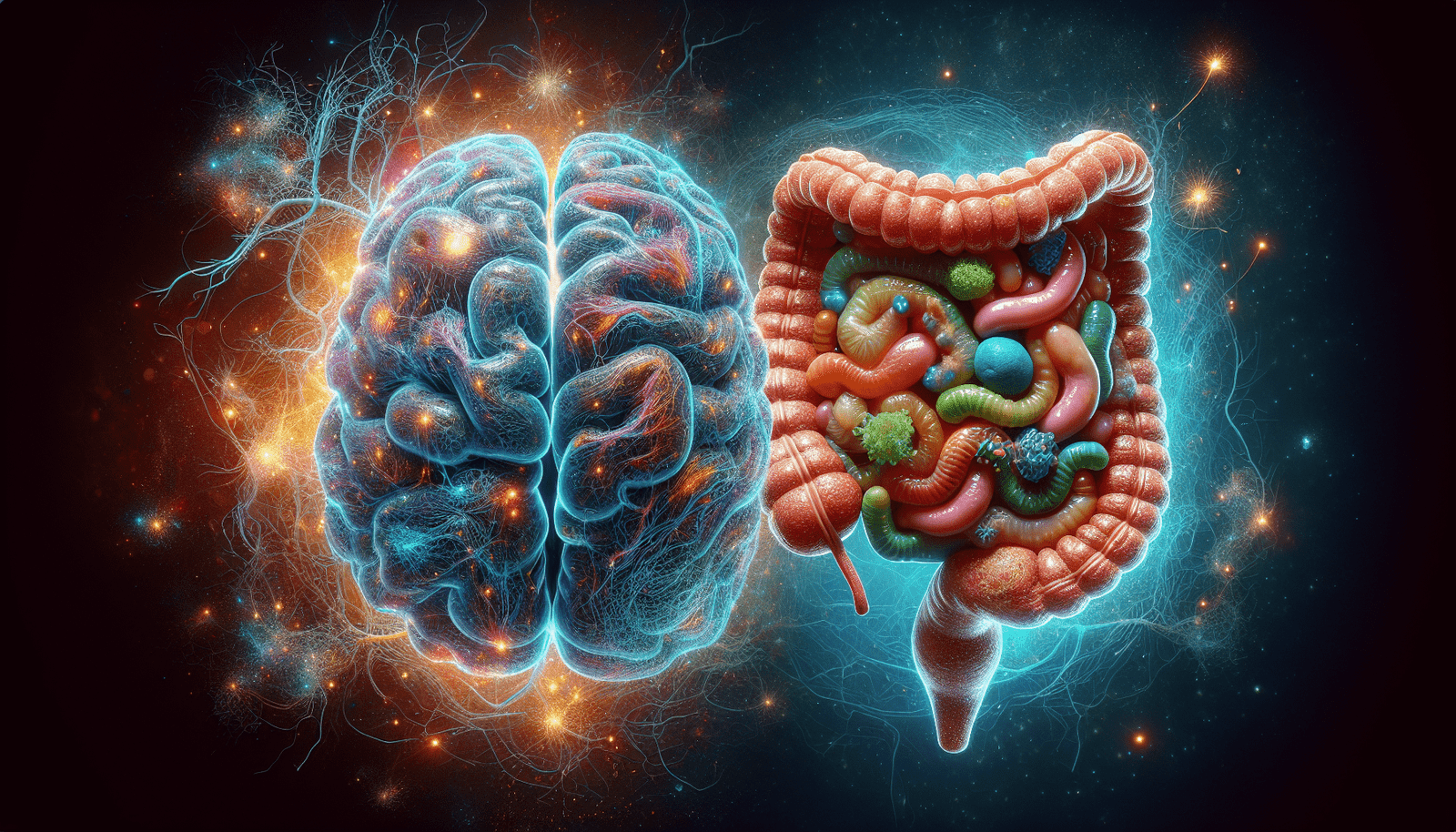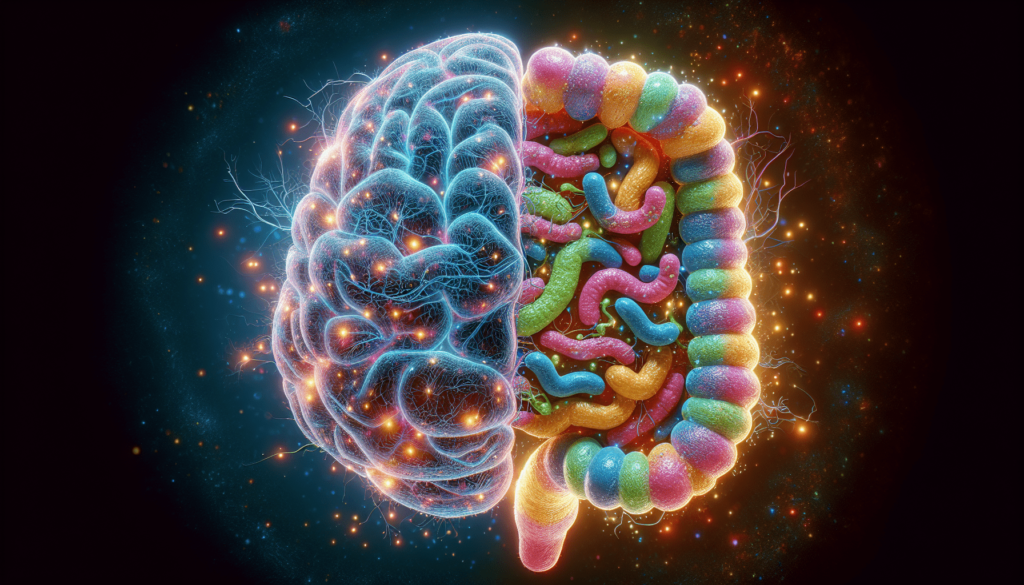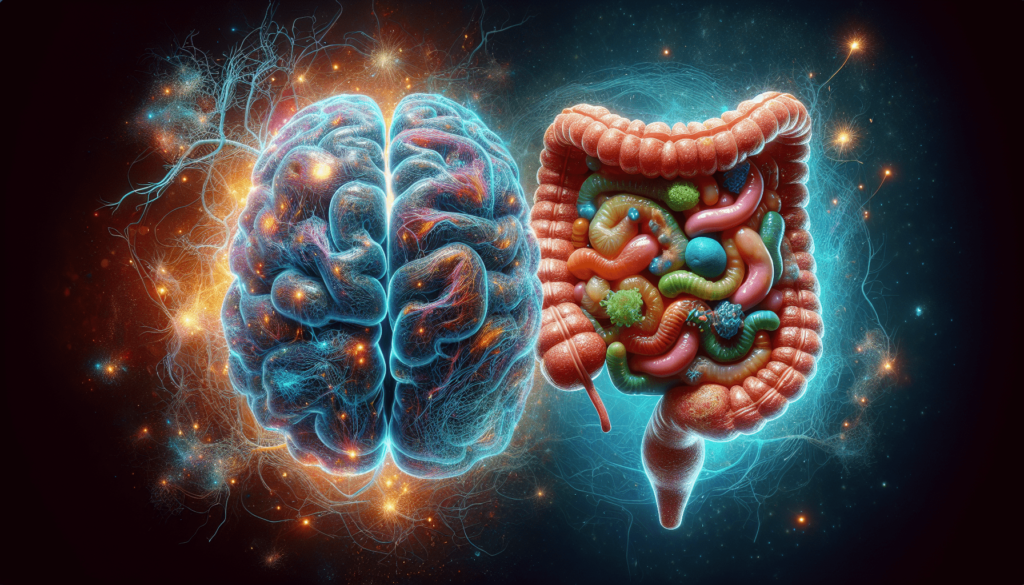
Have you ever thought about the connection between your gut health, your brain, and how both influence your aging process? It might not be the first thing that comes to mind, but the interplay between these areas is becoming increasingly significant in the scientific community.
Understanding the Gut-Brain Axis
The gut-brain axis is a term that encompasses the communication network linking your gastrointestinal tract and your brain. It’s fascinating because it implies that what you eat or how your gut functions doesn’t just affect your digestion but also your mood, cognition, and overall brain health.
What is the Gut-Brain Axis?
The gut-brain axis consists of a vast array of structures and signaling pathways that connect your gut microbiome—the communities of bacteria and microbes living in your digestive system—with your central nervous system. Some researchers liken it to a superhighway, continuously transmitting information back and forth.
Think about it this way: when you eat a balanced diet rich in fiber, probiotics, and other nutrients, your gut produces beneficial metabolites that can boost your mood and cognitive function. Conversely, an unhealthy gut can lead to feelings of anxiety or brain fog. This connection between your gut and brain underscores the importance of maintaining gut health for your overall well-being.
The Role of the Microbiome
Your microbiome is a collection of trillions of microorganisms, including bacteria, fungi, and viruses, that reside in your gut. This diverse ecosystem plays critical roles in digestion, immune function, and even how your brain processes information.
Research has shown that different diets can alter the composition of the microbiome. For example, diets high in sugar and processed foods can lead to dysbiosis, an imbalance in gut bacteria, potentially contributing to various health issues, including depression and anxiety.
How the Gut Influences Brain Function
You may be surprised to learn that 90% of serotonin, a neurotransmitter responsible for mood regulation, is produced in the gut. This highlights just how vital your gut health is for emotional well-being. Furthermore, the gut microbiome can also produce other neurotransmitters and neuroactive compounds that affect brain function and mood.
For example, studies have investigated the role of short-chain fatty acids (SCFAs), metabolites produced by the fermentation of dietary fibers by gut bacteria. SCFAs have been linked to enhanced cognitive function, reduced inflammation, and even the modulation of mood.
The Impact of Diet on Gut Health
Your dietary choices have a profound impact on your gut health. Foods rich in fiber, such as fruits, vegetables, legumes, and whole grains, nourish good bacteria in your gut. On the other hand, diets high in saturated fats and sugary snacks can promote the growth of harmful microorganisms.
Beneficial Foods
To cultivate a thriving microbiome, consider including the following foods in your diet:
| Food Type | Benefits |
|---|---|
| Fruits & Vegetables | High in fiber and antioxidants |
| Fermented Foods | Rich in probiotics (e.g., yogurt, kimchi) |
| Whole Grains | Provide prebiotics that support gut bacteria |
| Nuts & Seeds | Offer healthy fats and fiber |
These foods not only enhance gut health but can also impact your brain’s performance positively.
Stress and Its Effects
Stress is another significant player in the gut-brain axis. It can lead to increased gut permeability or “leaky gut,” allowing toxins to enter the bloodstream and trigger inflammation. When the gut experiences this kind of stress, the brain can be adversely affected, resulting in conditions such as anxiety and depression.
Understanding and managing stress through mindfulness techniques, exercise, and social connections can significantly improve your gut health and thus foster a more positive state of mind.
Aging and the Gut-Brain Axis
As you age, several changes occur in both your gut and your brain that can influence your overall health. The concept of “age-related dysbiosis” describes how the microbiome can shift in composition with age, which can lead to increased vulnerability to cognitive decline and mood disorders.
What Happens to the Gut with Aging?
With advancing age, your gut health may decline due to factors such as reduced gastric acid secretion, decreased gut motility, and a shift in the diversity of gut bacteria. This transformation may contribute to various gastrointestinal disorders, including constipation and inflammatory bowel disease (IBD).
Moreover, studies have shown that older adults often have a different microbiome composition compared to younger individuals. This shift may impact your immune response and brain health, underscoring the essential role gut health plays as you age.
The Connection Between Gut Health and Cognitive Decline
Cognitive decline is a natural part of aging for many individuals, but you may wonder if there’s a way to slow it down. Emerging evidence suggests that gut health could be a critical factor in maintaining cognitive function. A robust and diverse microbiome is often linked to better cognitive outcomes in older adults.
Research on certain probiotics and prebiotics indicates they might provide neuroprotective effects and even help enhance memory performance. While more studies are needed, the potential for improving brain health through diet and gut health makes it an interesting area to consider as you age.
The Role of Inflammation
Chronic inflammation is often linked to aging (inflammaging) and can contribute to many age-related diseases, including neurodegenerative diseases like Alzheimer’s and Parkinson’s. An imbalanced gut microbiome can lead to systemic inflammation, which may have a direct effect on your brain health.
Maintaining a balanced diet rich in anti-inflammatory foods, such as fatty fish, nuts, and leafy greens, can help you manage inflammation. Furthermore, engaging in regular exercise can support gut health and reduce inflammation levels in your body.

Introducing MB: A Potential Solution
Now that we’ve established the intricate relationship between the gut, brain, and aging process, let’s talk about an emerging player in this field—MB.
What is MB?
MB, short for Methylene Blue, is a compound that has been researched for its potential benefits on cognitive health. Primarily used in medicine as a dye and an antiseptic, scientists are exploring its implications for neuroprotection and anti-aging.
Methylene Blue has been found to enhance mitochondrial function, which is crucial for energy production in brain cells. Improved mitochondrial health could potentially lead to better cognitive performance and memory retention.
MB and Neuroprotection
Research suggests that MB may offer neuroprotective benefits against age-related cognitive decline. It operates as an antioxidant, neutralizing harmful free radicals that can damage brain cells.
In animal studies, MB has shown promise in enhancing memory and learning capabilities while reducing the effects of age-related neurodegeneration. While more human studies are needed, the preliminary findings are encouraging.
How to Incorporate MB
Integrating MB into your routine isn’t something to be taken lightly. If you’re considering it, it’s essential to consult with a healthcare professional to determine if it’s appropriate for you. Currently, MB is available in several forms, including oral supplements and transdermal solutions.
Potential Risks and Considerations
While MB holds potential, it’s crucial to be aware of its possible side effects. Some individuals may experience headache, dizziness, or digestive issues. Long-term effects of MB supplementation are still unknown.
If you decide to look into MB, make sure to do so with the guidance of a professional. They can provide insights into appropriate dosages and monitor any effects you may encounter.
Lifestyle Choices for a Healthy Gut and Brain
Your lifestyle choices can play a significant role in maintaining a healthy gut-brain aging axis. Here are some strategies to consider:
Regular Exercise
Exercise wasn’t just made for physical strength. It’s also a powerful tool for maintaining gut health and brain function. Regular physical activity can promote the growth of beneficial gut bacteria, reduce inflammation, and boost cognitive health.
Choosing activities you enjoy—whether it’s walking, swimming, or dancing—can enhance not only your mood but also your health as you age.
Mindfulness and Stress Management
Practices like meditation, deep-breathing exercises, and yoga can help manage stress levels. By reducing stress, you can mitigate some of the negative impacts on your gut health and, consequently, your brain health.
Social Connections
Maintaining social ties can also be beneficial for your brain health. Engaging with friends, family, or community groups can foster a sense of happiness and belonging, which can help alleviate feelings of isolation often linked to cognitive decline.
Sleep Hygiene
Don’t underestimate the importance of sleep. Quality sleep is crucial for cognitive function and gut health. Setting a consistent sleep schedule, creating a calming bedtime routine, and ensuring a conducive sleep environment can help improve your overall well-being.

Conclusion
The gut-brain-aging axis may seem like a complex subject, but at its heart lies the simple truth: taking care of your gut is taking care of your brain and your overall aging process. As science continues to unfold the intricate connections between our microbiome, cognitive function, and how we age, it becomes increasingly clear that what you eat and how you live can significantly influence your health outcomes.
Whether you consider incorporating more fiber-rich foods, exploring the potential of MB, or making lifestyle changes for overall health, you hold the key to influencing your gut-brain axis positively. So, why not take the first step today? Your gut and brain will thank you.